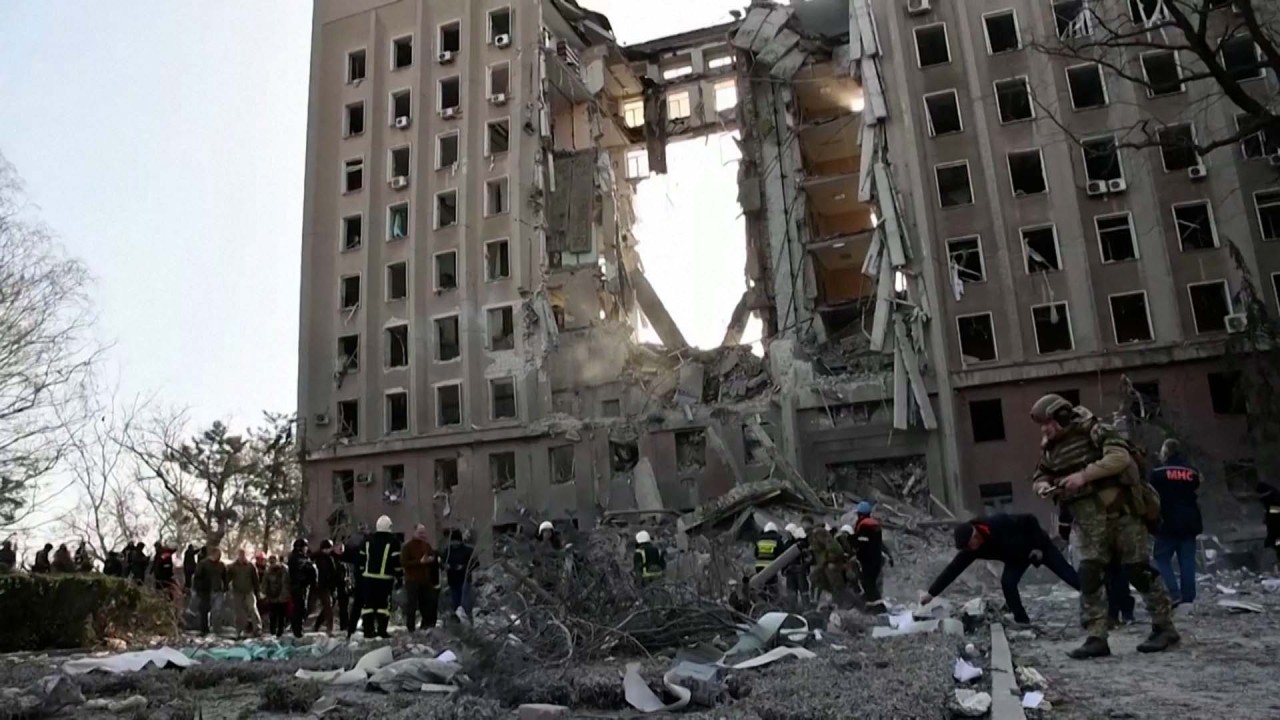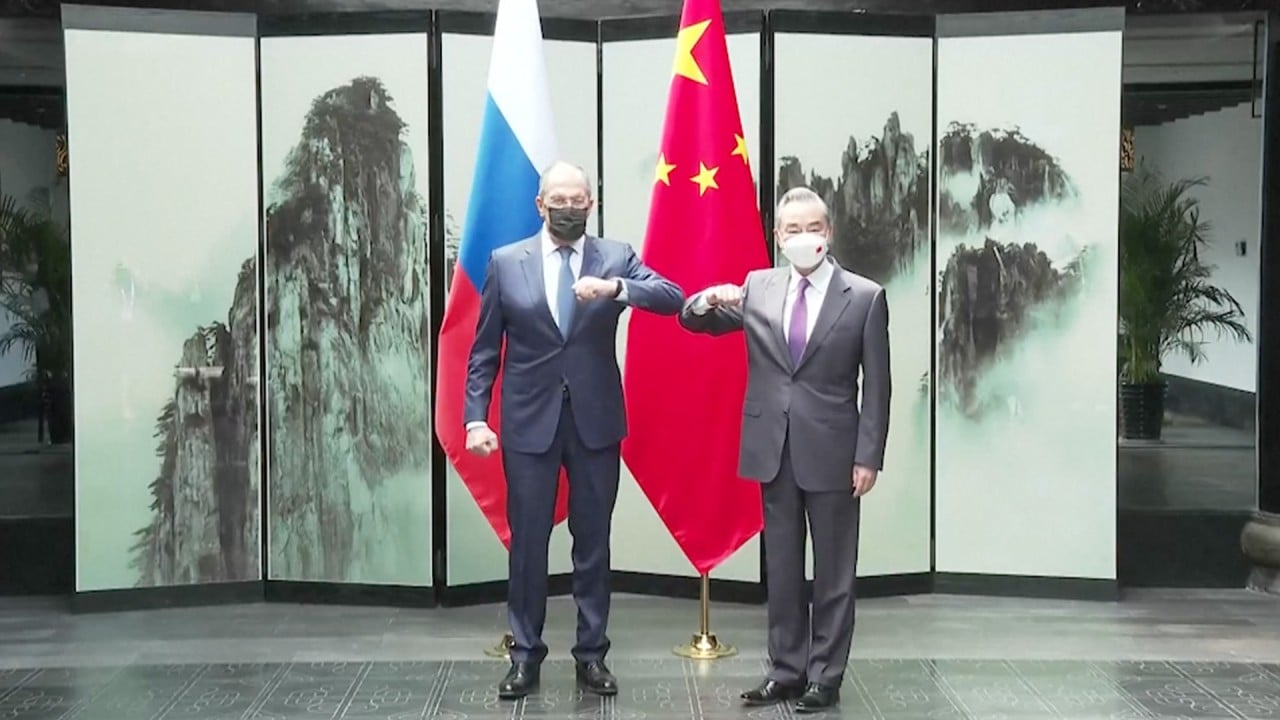
China-EU summit: hopes fade for investment deal as Ukraine war dominates talks
- The EU made scant mention of the agreement and there was no joint statement after the meetings
- But there is cause for cautious optimism for the relationship, Chinese analyst says
During the summit, the presidents of the European Commission and European Council, Ursula von der Leyen and Charles Michel, had separate talks with Chinese Premier Li Keqiang and President Xi Jinping.
On Saturday morning after the summit, Wang Lutong, director general of European affairs at China’s foreign ministry, said there was no progress on the CAI.
“The ball is in Brussels’ court,” Wang said.
“I think the Europeans have got to remove the sanctions first, and then we can explore the possibility of removing other retaliatory measures, which is reciprocal,” he said, referring to EU sanctions imposed on China over alleged human rights abuses in Xinjiang.
According to the ministry, Xi stressed the “continuity” in China’s policy towards Europe and urged the bloc to “form its own perception of China, adopt an independent China policy, and work with China for the steady and sustained growth of China-EU relations, providing stabilising factors to the volatile world”.
“China and the European Union should work to manage the situation and prevent spillover of the [Ukraine] crisis, in particular to maintain the stability of the world economic system, rules and foundations and to boost people’s confidence,” he was quoted as saying.
“The two sides can coordinate and cooperate in this regard.”
Ding Chun, director of the Centre for European Studies at Shanghai’s Fudan University, said there were few mentions of the frozen investment deal because the EU was focused on the war in Ukraine and China’s position on the conflict.
“The EU’s focus was on the Russia-Ukraine conflict rather than the CAI,” he said. “As the two sides have no willingness to back down from the sanctions, the difference over the deal remains great and the two sides have yet to find an acceptable solution to resolve the dilemma.”
Still, Xi tried to underscore China’s strong economic ties with the 27-member bloc, saying his country welcomed European business investment and expected the EU to provide “a fair, transparent and non-discriminatory environment” for Chinese investment.
And for the first time, Xi echoed the EU’s trade policy for “open strategic autonomy”, which Ding said was “a clear indication that China is looking to keep the cooperation momentum with the EU, particularly in trade and economic areas and that China is seeking an open cooperation, rather than group confrontation”, with the bloc.
Beijing, which has rejected calls from the West to condemn Moscow, has been increasingly caught in a diplomatic dilemma, between its comprehensive strategic partnership with Russia and strong economic ties with the West.
As its relations with Washington have worsened, Beijing has turned to Europe as a counterweight to the US, but there have been deep concerns that Brussels may follow Washington to harden its policy on China.
Ding said he was “cautiously optimistic” about the future of bilateral ties.
The two economic powers had strong economic and trade ties, and common interests in issues ranging from global governance and climate change, to pandemic prevention, he said.
“I don’t think the China-EU relationship will become a confrontational one,” he said.
Chinese leader warns it may take decades to fix damage from Ukraine crisis
After the virtual summit, von der Leyen said the two sides “exchanged very clearly opposing views”, with the EU warning that China would suffer “major reputational damage” in Europe if it tried to aid Russia.
Wang said China was “not doing anything deliberately to circumvent sanctions imposed on Russia by Americans and Europeans”, but its normal trade with Russia “should not be affected”.
“Even Europe has been conducting normal business with the Russians,” he said.
“We are contributing to the global economy by maintaining normal trade [with Russia], to avoid any possible disruption of the supply and industrial chains.”
Wang also cautioned that China’s role should not “be overestimated”.
“The key of this issue is not in the hands of China – it’s in Washington’s hands, it’s in Brussels’ hands,” he said, adding that the matter involved European security.
“It’s up to Europeans to get it sorted.”
Additional reporting by Reuters



